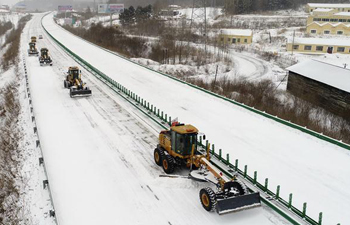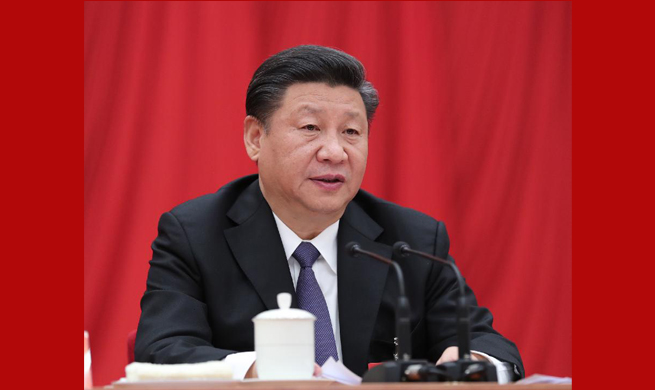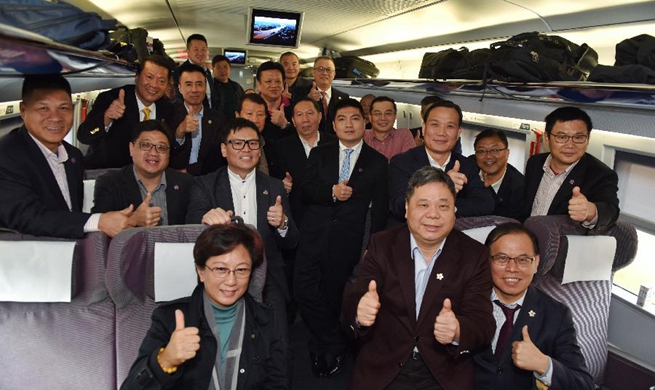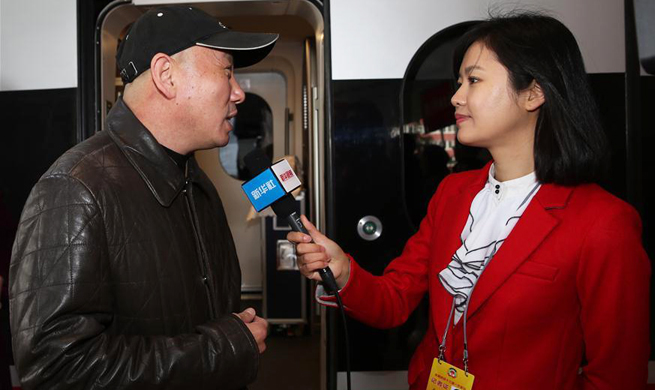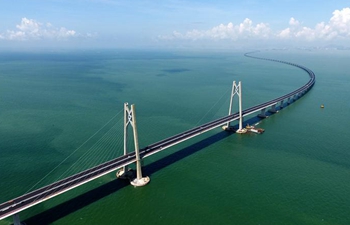SAN JOSE, March 2 (Xinhua) -- A Chinese construction firm is set to help Costa Rica expand an artery highway to improve its transport capacity and efficiency, and spur local economy in general.
Financing from the Chinese government is helping fund the modernization of the route 32, connecting the capital San Jose with the Caribbean town of Puerto Limon, where two port terminals, Limon and Moin, together handle as much as 80 percent of all Costa Rican imports, and exports to the U.S. East Coast, Europe and South America.
The China Harbour Engineering Company (CHEC), which operates in more than 80 countries around the world, has already begun laying the groundwork.
Despite its strategic role in trade, Route 32 has over the years fallen into disrepair, especially due to increasing passenger and cargo traffic in Limon and the capital.
Traffic along the 127.2 km two-lane blacktop is easily disrupted by roadway accidents or other unforeseen events, making expansion of the highway necessary.
Costa Rica's deputy minister of Public Works and Transport, Guiselle Alfaro, said Route 32 will see even more traffic when the new container terminal at Moin opens in a year.
"This route is going to move all the cargo from Moin ... and that has saturated the route's capacity for heavy cargo. It also makes things difficult for those carrying light cargo. That's why it is essential to separate cargo with two (added) lanes," said Alfaro.
The revamped four-lane highway is expected to have a positive impact in other areas, including the environment, by making it more efficient to ship goods and traffic accidents.
"The project is also going to improve pedestrian safety with some features. It is going to improve intersections, and in general it will cut down on shipping time. The benefits for our country are enormous," said Alfaro.
Wang Bingbing, assistant director of projects at CHEC, said the proposed design is still pending final approval, but preparatory work on the expansion began in December 2017, including transporting construction machinery and equipment to the site.
To minimize environmental damage, "the CHEC is cooperating with a renowned environmental consulting firm in Costa Rica and we are employing many environmental engineers to guide us," said Wang.
Alfaro acknowledged the CHEC's willingness to fulfill all of the country's stringent environmental norms.
"We have noticed the great effort and performance of the CHEC. They have tried to overcome all of the existing cultural differences and they have done their best to comply with our regulations, mainly regarding the environment," said Alfaro.
Costa Rican business owners who depend on agile imports or exports are anxiously awaiting the project's completion, including Ricardo Mora, owner of El Lagar, a well-known chain of hardware stores.
"Some 90 percent of our imported products enter through Moin, through Limon. It's highly important for us, not just because of the improved transportation time between Limon and San Jose, but because of the major benefit of not having to collect anything in Limon, and shipping it directly," Mora said.
With Moin's modern container terminal poised to boost trade, expanding the central highway is fundamental, he noted.
"Shortly after the other terminal goes into operation, we will have two major terminals. We really believe the expansion will lead to significant development in all areas," said Mora.








